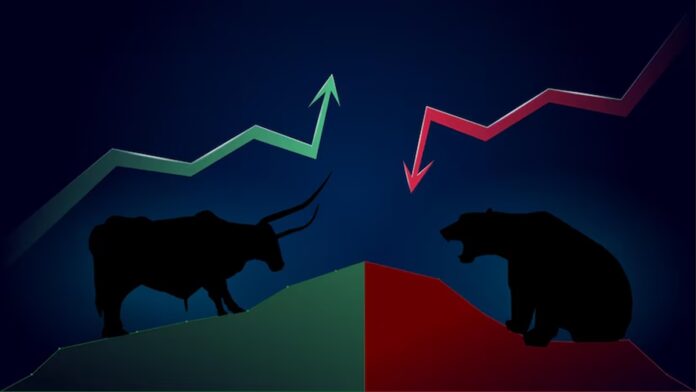It was a cruel joke on the stock markets on April Fool’s day, which was also the beginning of a new financial year. Stock indices fell over 1.5% on Tuesday — their biggest single-day drop in more than a month. Fears of US President Donald Trump’s reciprocal tariffs kicking in April 2 kept investors on the edge, and many took money off the table due to the uncertain outlook.
The Sensex declined 1,390.41 points, or 1.80%, to close at 76,024.51, while the Nifty dropped 353.65 points, or 1.50%, ending at 23,165.70. The Indian equity markets remained closed on Monday on account of Eid.
ALSO READTraumatic Tuesday: Trump concerns spark sell-off; Nifty, Sensex close over 1.5% lower
However, despite the sharp fall in benchmark indices, the broader market remained relatively resilient. The BSE Midcap index declined 1.04%, while the BSE Smallcap index edged up by 0.07%. The overall market breadth was positive, with 2,708 gainers against 1,344 losers.
HDFC Bank (400 points) and ICICI Bank (189 points) together accounted for over 40% of the Sensex’s 1,390-point decline.
Foreign portfolio investors (FPIs), which have turned positive in recent times, were net sellers to the tune of Rs 5,901.63 crore and domestic institutional investors (DIIs) bought shares of Rs 4,322.58 crore on Tuesday, as per provisional data by the BSE.
“Investors slashed their equity bets ahead of the implementation of Trump’s reciprocal tariffs on imported goods starting Wednesday, as the decision is expected to impact India’s trade advantage with the US,” said Prashanth Tapse, senior VP (research), Mehta Equities.
Domestic markets underperformed global peers as investors feared the tariff decision could dampen sentiment and trigger further declines, he added. Besides India, Malaysia (down 1.44%) and Singapore (down 0.09%), all other major global equity markets traded higher on Tuesday.
“Concerns over potential disruptions to international trade kept investors on edge, leading to increased volatility,” said Sundar Kewat, technical and derivatives analyst, Ashika Institutional Equity.
Reflecting the heightened volatility, India VIX surged 8.37% to 13.78.
Investors’ wealth eroded by Rs 3.44 lakh crore, bringing the total market capitalisation on the BSE down to Rs 409.43 lakh crore.
Realty, consumer durables, IT, financial services, and teck were the worst-performing sectors,
» Read More


